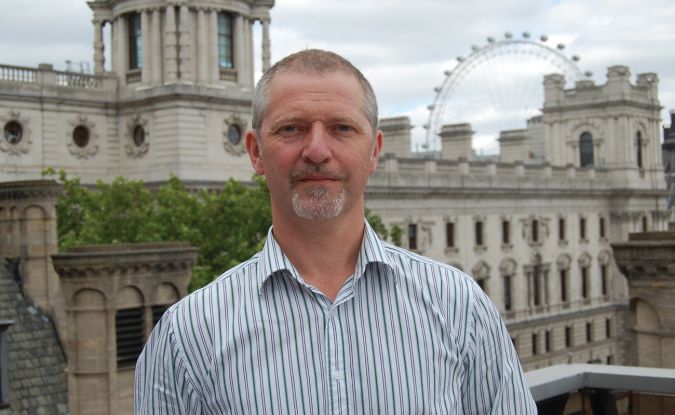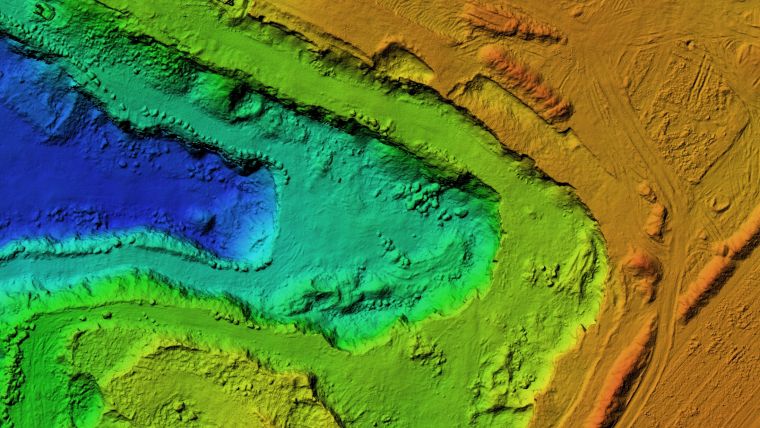Why Geospatial Will Always Be a People-centric Profession
As geospatial professionals, we pride ourselves on being led by objective data that we can verify and trust. But like all humans, even we are not immune to bias, according to James Kavanagh.
I was intrigued to read recently about another step forward in the accelerating integration of different geospatial technologies. In this case, the seamless integration of North Sea oil/gas-rig data captured using unmanned aerial vehicle (UAV or ‘drone’) platforms, Lidar sensors and mobile/static digital photogrammetry is allowing the creation of a highly accurate geospatial model of an extremely complex structure in a very hostile natural environment. This 3D model will enable specialist engineers and other professionals to access this enormous and expensive structure ‘virtually’ for condition reporting and decommissioning from their land-based offices. In the UK, we tend to think of land-based and offshore/hydrographic geospatial survey as two sides of the same coin. In fact, our academic education combines both sectors. The combination of bathymetry with land-based data capture is evolving rapidly, so applying the technique in a deep-water offshore environment – as Texo DSI is doing – is a logical step forward.
The increasingly ‘remote’ and ‘hands-off’ nature of much of what we do within geospatial can cause particular issues, especially during the current COVID-19 pandemic. We are at our core a public-facing profession, dealing with people, clients and other professionals on a very regular basis. New geospatial technology will change some aspects of these relationships and we do have an important task to increase our professional understanding of how ethics and ethical data use will impact on the services that we provide. More of these issues are worthy of future discussion, but for now I’d like to consider the ethical impact of ‘unconscious bias’ in geospatial information and its use. Unconscious bias is unintended and subtle; it is based on unconscious thought and can lead to all kinds of unintended consequences including misuse of information, discrimination, unsupported judgments and prejudice. Algorithms drive artificial intelligence and machine learning, but the ‘unconscious bias’ of the code programmers and developers can seep into the system (witness the unease over the use of face recognition software in many Western capitals, or educational algorithms used to award exam grades to students during the pandemic). This bias has caused alarm within governments and even led to an independent report in the UK called ‘Review into bias in algorithmic decision-making’.
In the arena of geospatial data, we pride ourselves on being objective and data-led, on being critical about data and on relying on ‘control/ground truthing/markers’ that we can verify and trust. But we, like all humans, are not immune. Confirmation and selection bias (forcing data to fit your own predetermined opinion) can be evident in GIS data modelling. Personal data can add potential for stigma and discrimination resulting from being associated with particular locations (this can affect everything from employment prospects to credit ratings to healthcare access) and tenant data can allow unconscious bias to inform investment, lease and rental-related decisions. Major firms are now offering unconscious bias training, and perhaps the first step in dealing with it is recognizing that it exists in the first place. The Benchmark Initiative is a good place to start for any further reading on this important subject.

When looking after the public, clients and other professionals, we can often forget to pay sufficient attention to ourselves and those that work in or are studying towards a geospatial career. Mental health issues have never been more evident than in the past year – when COVID-19 lockdowns have blurred the boundaries of work, family and home life – and the alarm bells are ringing. Recent surveys show that construction workers are three times more likely to take their own lives than the rest of the population – and that’s compared with a general population where one person in six feels under intense stress. Tragically, several RICS surveyors have taken their own lives over the years and the RICS charity Lionheart has launched a campaign on this issue.
When we look to the future, geospatial students are undergoing a torrid time at present with nearly three quarters (73%) of students saying that their mental health had declined during the lockdown. [Student mental health during coronavirus | Mind, the mental health charity - help for mental health problems] Mental health still has a significant social stigma attached but it is critical for the future of the geospatial profession that we openly discuss and debate these issues. Yes, we love the technology… but let’s also love and look after ourselves just a little bit more.
Further reading
https://benchmarkinitiative.com/
https://www.lionheart.org.uk/mh

Value staying current with geomatics?
Stay on the map with our expertly curated newsletters.
We provide educational insights, industry updates, and inspiring stories to help you learn, grow, and reach your full potential in your field. Don't miss out - subscribe today and ensure you're always informed, educated, and inspired.
Choose your newsletter(s)
























